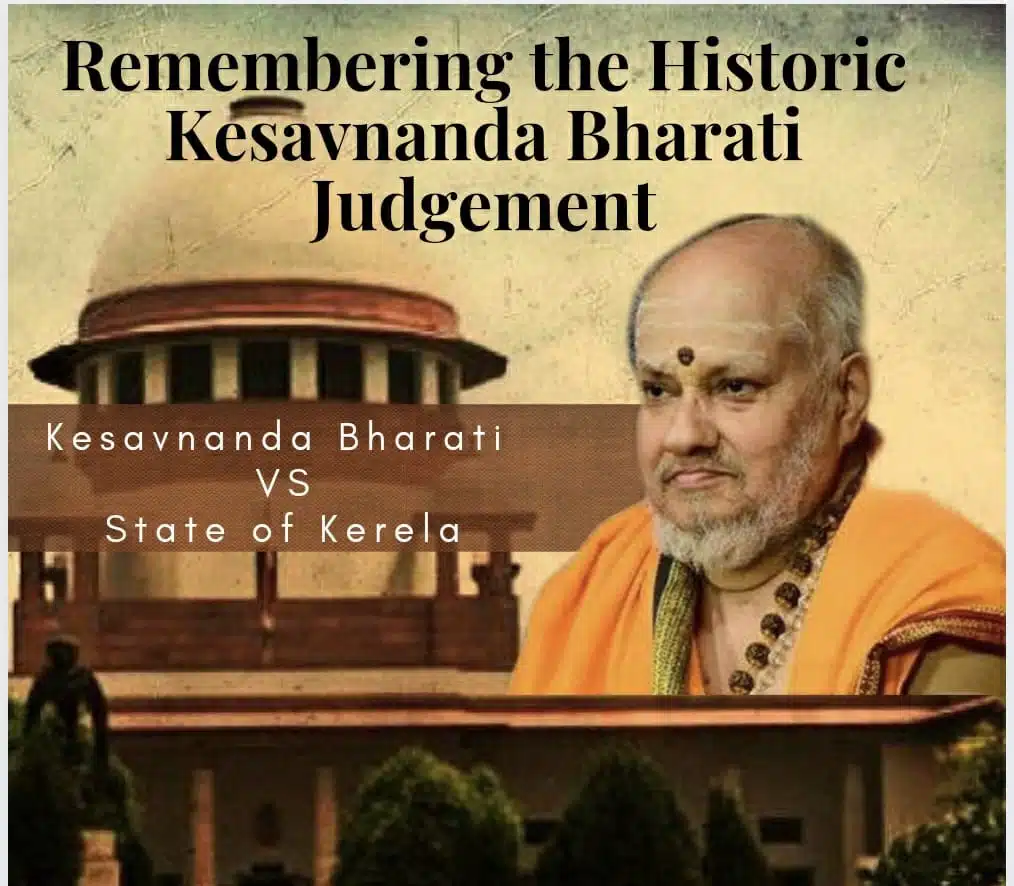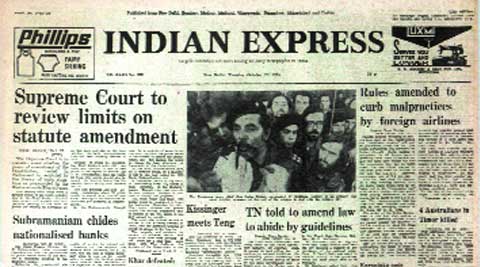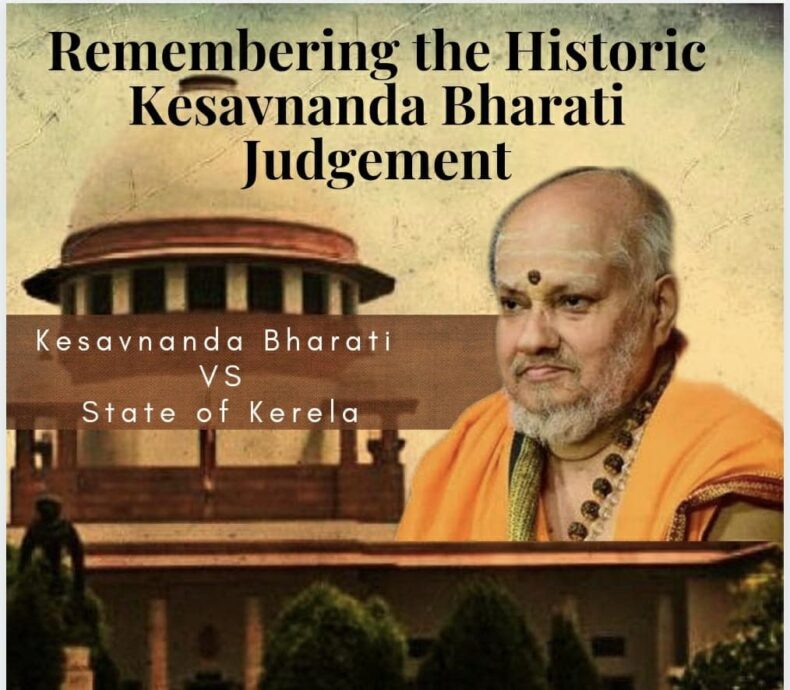
On April 24th, 2024, India celebrates the golden jubilee of the landmark Kesavananda Bharati case, which is considered a turning point in the country’s constitutional history. The judgment was delivered by a 13-judge bench of the Supreme Court on April 24, 1973, and has since become a cornerstone in the interpretation and application of India’s constitution.
The case was initiated by Kesavananda Bharati, the head of a Hindu monastery, who challenged the Kerala government’s attempt to acquire land belonging to the monastery. The case ultimately turned into a battle over the extent of the Indian Parliament’s power to amend the Constitution. Bharati argued that the Parliament’s power was not unlimited and that certain fundamental rights, including the right to property, were immune from being amended.
SIGNIFICANCE OF THE BASIC STRUCTURE DOCTRINE
The Supreme Court’s decision in the Kesavananda Bharati case upheld Bharati’s arguments and established the principle of the “basic structure doctrine.” According to this doctrine, there are certain essential features of the Constitution that cannot be altered even through the amendment process. These features include the sovereignty of India, the democratic form of government, the separation of powers, the federal character of the Constitution, and the protection of fundamental rights.

The Kesavananda Bharati case has had far-reaching implications for Indian constitutional law. It has provided a framework for the interpretation and application of the Constitution and has helped to ensure that the Constitution remains a living document that adapts to changing social and political realities. The basic structure doctrine has been invoked in numerous cases since the Kesavananda Bharati decision to challenge amendments to the Constitution that have been seen as violating its essential features.
COMMEMORATING THE GOLDEN JUBILEE
The golden jubilee of the Kesavananda Bharati case is an occasion to honor this legal milestone and reflect on its significance for Indian constitutional law. The Supreme Court has announced the launch of a webpage dedicated to the judgment, which will provide access to the full text of the judgment and related materials. This webpage will serve as a valuable resource for legal scholars, practitioners, and students seeking to understand the implications of the Kesavananda Bharati decision.
In addition to the webpage, there will be a series of events and discussions organized to commemorate the golden jubilee of the Kesavananda Bharati case. These events will provide an opportunity for legal experts, scholars, and practitioners to reflect on the significance of the judgment and its impact on Indian constitutional law. They will also serve as a reminder of the importance of upholding the Constitution and protecting its essential features.
RESILIENCE OF THE INDIAN DEMOCRACY
The Kesavananda Bharati case is a testament to the resilience of Indian democracy and the strength of the Indian judiciary. It demonstrated that even in the face of political pressure and attempts to undermine the Constitution, the judiciary can act as a bulwark against unconstitutional actions. The basic structure doctrine has been instrumental in ensuring that the Indian Constitution remains a living document that can adapt to changing social and political realities.
As India celebrates the golden jubilee of the Kesavananda Bharati case, it is important to recognize the role that this case has played in shaping the country’s constitutional history. It has established a precedent for the protection of fundamental rights and the essential features of the Constitution and has helped to ensure that India remains a vibrant and robust democracy.
The Kesavananda Bharati case represents a significant milestone in Indian constitutional law, and its golden jubilee is an occasion to honor its legacy and reflect on its significance.
The basic structure doctrine has become an essential tool for ensuring that the Indian Constitution remains true to its foundational principles and that India remains a vibrant and robust democracy. As India continues to face new challenges in the 21st century, the Kesavananda Bharati case serves as a reminder of the enduring importance of the Constitution and the role of the judiciary in upholding its essential features.












